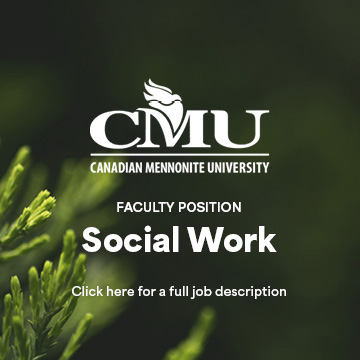“You can’t pour from an empty cup.”
The words came from a place of kindness and empathy, from someone who knew the feeling. It hit me to my core, because I was empty.
It was 2015, days after the photo of the Syrian child Alan Kurdi was on the front page of newspapers around the world. This was the moment when the world finally awoke to the realities of the global refugee crisis. Now the images were all over the news. It was relentless; the suffering seemingly endless.
This wasn’t the first time, nor the last time I’ve felt completely exhausted, overwhelmed and burned out by my work.
Within civil society organizations (CSOs) in the non-profit sector, which I work in, we see images like this and hear the stories that go with them all the time.
However, what we don’t often talk about are the impacts, short- and long-term, on those of us watching and walking with others in these kinds of circumstances: those on the ground accompanying communities; those visiting and spending time with project participants; and those at their desks reading the harrowing stories from halfway around the world.
Though not always said out loud, this is often coupled with an attitude of “suck it up” and a kind of messiah complex. After all, those accompanying others are not going through the same things—they cannot be suffering so much. There is a kind of shame, guilt and apparent weakness sometimes associated with needing to step back and catch one’s breath.
However, more and more we are learning that this is not a fair assessment. We know from the Canadian Mental Health Association that one in five Canadians in any given year will experience a mental-health problem or illness and, by age 40, 50 percent of the Canadian population will have, or have had, a mental illness. The helping and serving sectors are potentially very vulnerable, due to the proximity to trauma.
I speak to this from a very personal perspective, coming from a lived experience with a chronic mental illness, which makes me even more susceptible to my circumstances, and vulnerable to secondary trauma and burnout.
This is why I argue that many CSOs should be officially recognized, both internally and externally, as trauma-exposed organizations—that is, the staff are regularly coming in close contact with trauma even if it is not their own, and this brings a risk of mental-health issues. Yet the resources for help and support remain limited.
Some of these risks, in addition to regular mental-health challenges, include what those in the helping sectors refer to as compassion fatigue or empathetic strain. Dr. Francoise Mathieu, in her book, The Compassion Fatigue Workbook: Creative Tools for Transforming Compassion Fatigue and Vicarious Traumatization, describes compassion fatigue as “the profound emotional and physical exhaustion that helping professions and caregivers can develop over the course of their careers as helpers . . . [and is often] described as the ‘cost of caring.’ ”
Earlier in the workbook, she sets the stage for the days we live in and its implications for those who serve, noting, “the reality is that we work amid oceans of pain and there will always be more clients in need than we can possibly help.”
Yet, in my experience, it is still rare for this to be acknowledged or understood, or for robust systems of support to be provided within the international development and peace sectors. Change is coming slowly in some areas. An organization in the sector that I’m familiar with, for example, recently carried out trauma resiliency training for all national staff. This was in part due to a trauma audit that was carried out several years ago by a friend as part of her graduate studies. In the introduction, she called on the organization’s mission statement to serve and reach out to the most vulnerable, a call also to support staff who are struggling. She writes:
“[Our] mission statement emphasizes the value we place on those in vulnerable situations and the intent to demonstrate love and compassion through the work to meet people’s basic needs. . . . [Our] mission statement calls for careful reflection on how relationships are honoured with God, nature and each other by recognizing the experiences that cause brokenness and healing.”
Often these kinds of changes come from within, from individuals like my friend and others. They encourage me to keep raising the issues and bringing small changes until we see the big changes we need, until the sector fully embraces and comes alongside its workers who feel lost and overwhelmed.
Rebekah Sears is a policy analyst and government relations specialist for Mennonite Central Committee Canada’s Peace and Justice Office in Ottawa. A longer version was originally posted online at psychologytoday.com on April 12 of this year.




Add new comment
Canadian Mennonite invites comments and encourages constructive discussion about our content. Actual full names (first and last) are required. Comments are moderated and may be edited. They will not appear online until approved and will be posted during business hours. Some comments may be reproduced in print.